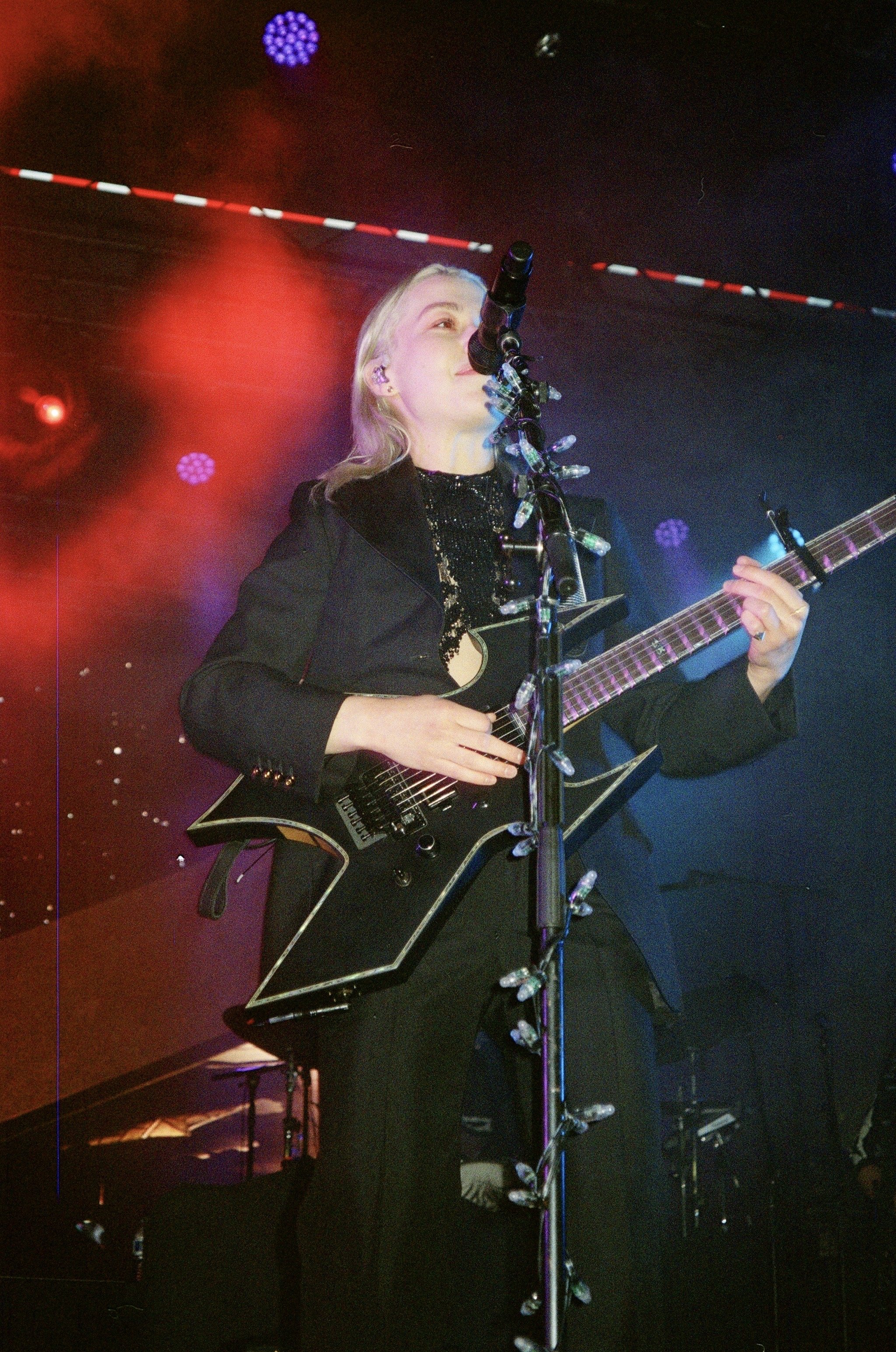If You Were a Waiting Room: The Obsession With Phoebe Bridgers’ Unreleased Music
Before she was propelled into indie stardom, singer-songwriter Phoebe Bridgers was sixteen years old, guitar in hand, performing a song about unrequited love at a show organized by her performing arts high school. Later, she will cringe at the lyrics that articulate the universality of teenage love with agonizing specificity: “I wrote it when I was, like, sixteen… One, it's super sincere, and I meant everything. But it's so emotionally raw, and I'm so pining for someone.”
Photo by Birdy Francis, previously published in Sunstroke Magazine’s Kilby Block Party 2022 coverage
“Waiting Room” unravels in a frenzy of unabashed juvenility: “If you were a teacher, I would fail your class / Take it over and over again until you notice me”. Bridgers parallels the beloved coming-of-age stories that postdate her 2012 adolescence (when Perks of Being a Wallflower’s Charlie admits he didn’t think anyone noticed him; when the titular character of Lady Bird learns that love and attention are the same) and presents her SoundCloud listeners with a sincere dive into the psyche of a teenage girl in love.
It was just an ordinary Tuesday: on January 24, 2023, “Waiting Room” mysteriously vanished from Spotify, sending a specific corner of the Internet into what can only be described as mass grief. “they took waiting room off spotify. this is a national crisis,” TikTok user @nolanrussellmusic writes, receiving 96 thousand likes. On Twitter, @sapphobyers shares a clip of Jane the Virgin collapsing to the ground as a reaction to the news. They’re dramatic in the way Bridgers is dramatic; just like her teenage crush, the song’s disappearance felt like the end of the world.
With so many people’s lives at our fingertips, it feels impossible to be any closer to each other. One minute on TikTok or Instagram superimposes countless thoughts, routines, and desires onto our own experiences. That is to say, we have never known more about each other. It’s transformed our romantic relationships — every new love story seems to begin with two smartphones: replying to stories, liking posts, texting confessions best left unspoken. A new kind of vulnerability exists on the Internet, and the feverish response to a song released eleven years ago only spotlights it.
“it’s always ‘wyd?’ and never ‘iywawriwnsadistwmfakb’,” @emmalovestsw1ft laments on TikTok, acronymizing a couplet from “Waiting Room” (“If you were a waiting room, I would never see a doctor / I would sit there with my first-aid kit and bleed”) for comedic effect. But it’s not just that specific video and it’s not just “Waiting Room” — it’s become an ongoing trend to compare the apathy of the online dating scene to the heartfelt romance captured in media. Quoting the 2005 adaptation of Jane Austen’s Pride and Prejudice, @samiyahar_ tweets, “i just want someone to tell me that they love me most ardently or that i’ve bewitched them body and soul 😣😣”. Is that too much to ask for?
Perhaps this explains why the internet gravitates toward sincere modern love stories, because they seem both attainable and worthwhile. Take The New York Times’ Modern Love column, a segment where readers send in their personal love stories for publication. “Essays must be entirely true. Do not use pseudonyms,” the submission page warns. In one of the column’s most popular essays, “I Bet You Think These Songs Are About You,” the author speculates on whether the Spotify playlists her “situational friendship” turned “romantic entanglement” was curating were actually subliminal messages about their relationship. It’s nothing like a Jane Austen novel, but it’s love nonetheless.
Although less popular than “Waiting Room,” “Radar,” another unreleased Phoebe Bridgers’ song, expresses the same nostalgic feeling of young love. Three lines in the second verse, “Each morning I get dressed for you / Heartsick feeling right on cue / You’ve got me like a walk in the park,” underscore just how vulnerable the speaker feels under her love interest’s gaze. Singing over defined guitar plucking, Bridgers creates a universe with her crush at the center — the “flashing light” pulling her into orbit. And that vulnerability does not go unnoticed; the three-minute SoundCloud exclusive has found a small-but-loyal fanbase online. “This is one of those songs that is just So Me,” @garbhann writes over a “Radar” snippet, “If I were a fictional character in a new Netflix original series that [Phoebe Bridgers] was asked to write a song for, this would be the song.”
Just like “Waiting Room,” the beauty of “Radar” lies in its openness. Each iteration of the chorus defies mature “realistic expectations” and dares to imagine more, more, more with another person. Neither song would be out of place on the soundtrack of any coming-of-age movie or TV show, and the audience embraces the opportunity to become the timeless heroines in their own ever-complicated love lives. So while the Internet does expose dating horror stories and regular existential anguish, it also props up the simplest and most-enduring depictions of love. ♦

